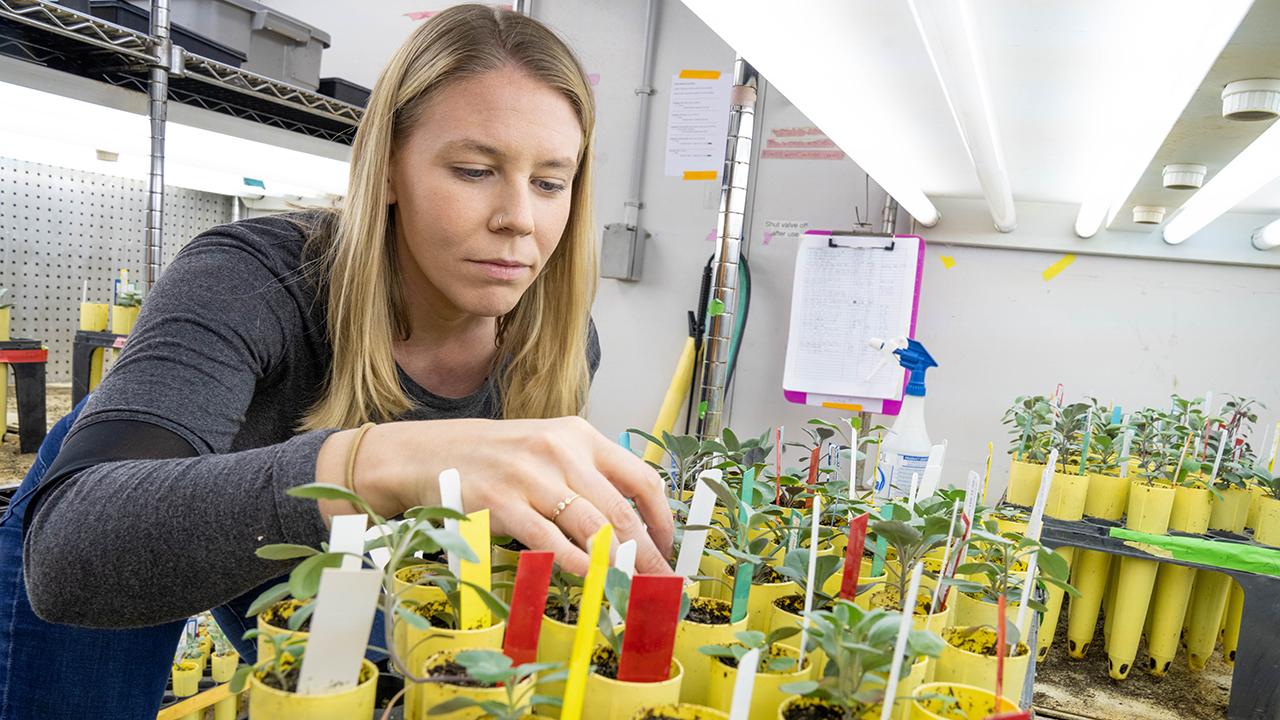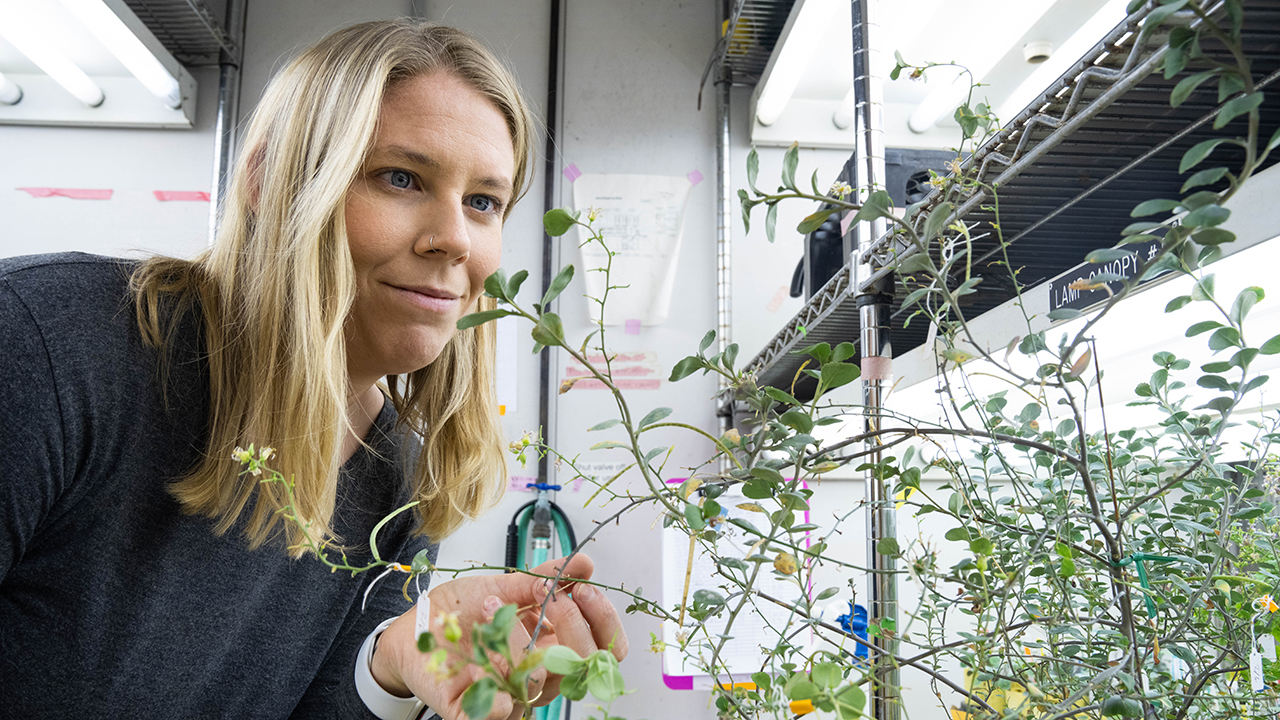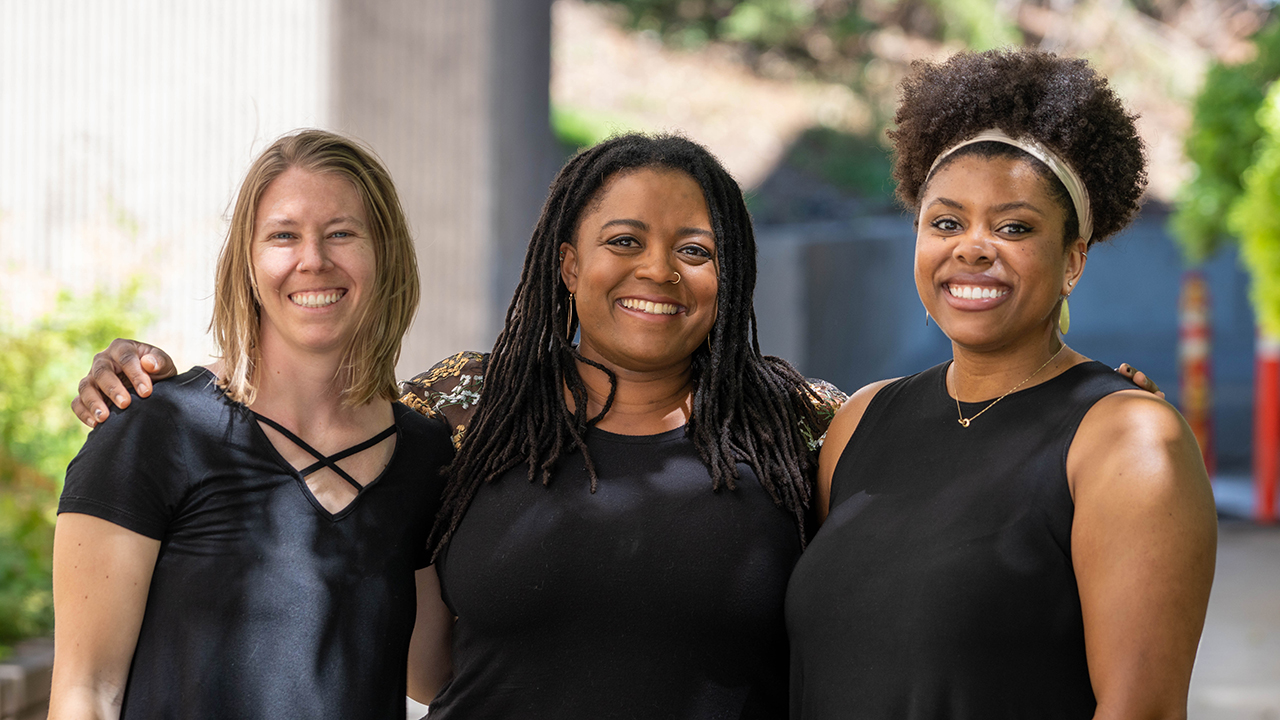
From Tide Pools to Policy: CBS Graduate Student Leads in Environmental Research and DEIJ Advocacy
Through research and commitment, Elena Suglia embodies the intersection of ecological research, science policy, and Diversity, Equity Inclusion and Justice
Elena Suglia, a soon-to-graduate Ph.D. candidate in the Population Biology Graduate Group, has spent her time at Davis tackling the “inextricably intertwined issues” of environmental protection, environmental justice, and equity.
In recognition of her leadership in working at the intersection of science and public policy, Suglia was awarded the 2023 Emerging Public Policy Leadership Award from the American Institute of Biological Sciences.
On campus, Suglia has been deeply involved with Diversity, Equity Inclusion and Justice (DEIJ) advocacy, having served on the Population Biology Student Diversity Committee and as the DEIJ graduate student advisor to CBS Dean Mark Winey. Her CV also includes published science communication pieces in Scientific American and Massive Science, as well as two trips to Capitol Hill to advocate for science research and policy.
Beginnings: it all started with the sea
Suglia grew up in Rhode Island, playing in the tide pools and exploring the coastline. “I became interested in science and marine ecology at a young age,” said Suglia. “Then as I got older, I learned about climate change and wanted to do something to address that.”
This natural curiosity led her to pursue marine biology at Brown University, after which she pivoted towards plant pollinator systems and plant evolution and genetics. “Plants are much easier to work with than marine organisms because you don't have to worry about the tides or the animals moving around, but my heart is definitely still with the ocean,” said Suglia.

Researching resilience to climate change
At Davis, Suglia is investigating the effects of climate change on the jewelflower (Streptanthus tortuosus) in the lab of Jennifer Gremer, an associate professor in the Department of Evolution and Ecology.
“On the science side, Elena has tackled field work, greenhouse experiments, genomic studies, and quantitative analyses to understand how a native wildflower is responding to climate change,” said Gremer. “At the same time, she has been tireless in her DEIJ efforts, and she has continued to develop and grow as a leader in my lab, on campus, and beyond.”
The jewelflower is a wildflower that grows in a range of different habitats throughout southern California: from cold and snowy mountainous areas to lower elevations with hot, dry climates. This wide-ranging distribution makes the jewelflower a great organism in which to study plant responses to climate factors such as drought and heatwaves.
Suglia sees obvious ties between her ecological research and her other passions—social equity and justice—which she has pursued during her time at Davis.
“I’m interested in increasing the resiliency of both human and natural systems to climate change,” said Suglia. “Well-crafted policy can address multiple problems at once, like simultaneously mitigating climate change and liberating marginalized communities from systemic oppression.”
Personal path to improving social justice
Though Suglia was already interested in social justice, she became much more actively involved in graduate school. Her increased commitment at this time was spurred by a personal event: Suglia, who is adopted, flew to Florida to meet her biological family for the first time in 2017, just as she was beginning graduate school at Davis.
“Meeting them reinforced to me how important your environment is in shaping your experience, and that really motivated me to do more to improve equity,” said Suglia. “I have been given a lot of privileges and I wanted to give back and use those privileges to uplift these marginalized communities that, if I hadn't been adopted, I most certainly would have been a part of.”

DEIJ work at Davis
For the past year, Suglia has served as a the DEIJ graduate student advisor to Dean Winey, alongside fellow population biology graduate student Alexus Roberts Hugghis.
Before joining the dean’s office, Suglia worked with the Population Biology Student Diversity Committee to support diversity in the Population Biology Graduate Group at UC Davis, which logged several achievements during Suglia’s tenure, including increasing student pay and incorporating more holistic admissions criteria for incoming students.
“I was inspired by how much positive change a small group of people could enact just by educating themselves, listening to the folks who were struggling, and petitioning for change,” said Suglia.
As graduate advisors to the dean, much of Suglia and Roberts Hugghis’ work has focused on giving graduate students recognition for their DEIJ work, and allocating funds so that this work can continue.
Together, the pair spearheaded the CBS DEIJ Initiative Grant, which granted funds to 11 graduate student-led proposals that ran the gamut from outreach and mentoring programs, to community support gatherings, educational projects and classes.
Suglia and Roberts Hugghis also initiated the Graduate DEIJ Leader Fellowship program, which welcomed its first cohort of eight fellows in the 2022-2023 year. The fellows worked independently on their own DEIJ projects throughout the year, which were showcased at a culminating open house in June. “It was so rewarding to form this wonderful little community of fellows, who I hope will continue to collaborate and grow their network long after the fellowship is over,” said Suglia.
“Elena Suglia's dedication to scientific excellence and her commitment to promoting diversity, equity, inclusion, and justice have been a source of pride in the college,” said Mark Winey. “Not only has she demonstrated exceptional talent in her research, she has also paved the way for positive change within our community. I am confident she will continue to be a force for positive transformation in the scientific world and beyond.”
What’s next? Weaving her own path
Suglia is finishing up her time at Davis in the fall and is keeping her options open, though she says her ideal career would include science, policy, and DEIJ work.
“Because environmental protection and environmental justice are inextricably intertwined issues, one can't be addressed without the other,” said Suglia. “One of my career goals is to bridge the gaps between the two, and I think my background as a scientist and my work in diversity, equity and inclusion will help.”
Media Resources
- Liana Wait is a freelance science writer based in Philadelphia. She has a Ph.D. in ecology and evolutionary biology and specializes in writing about the life sciences.
